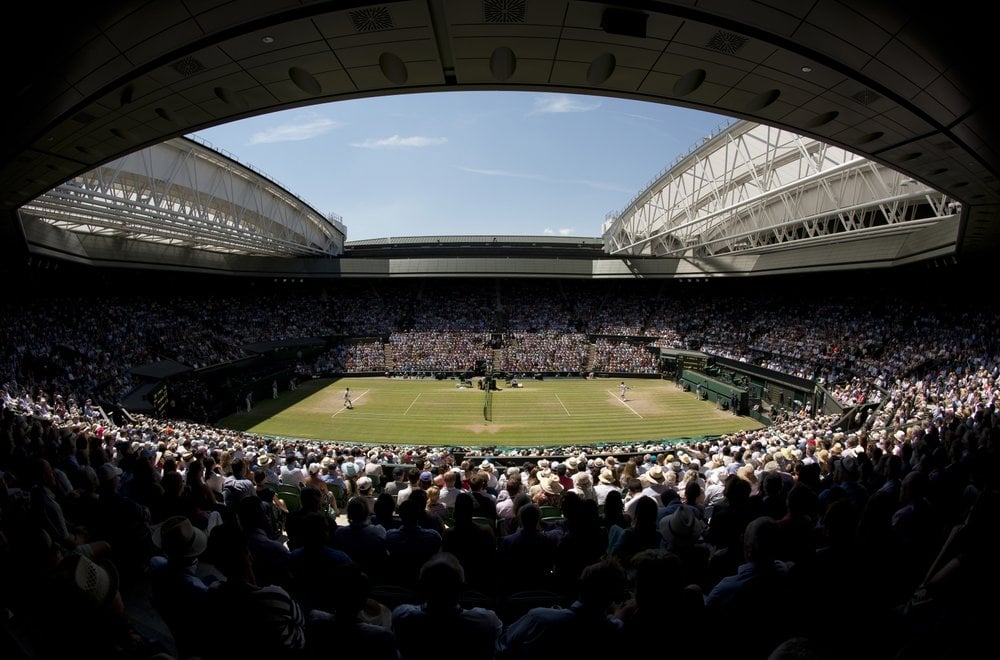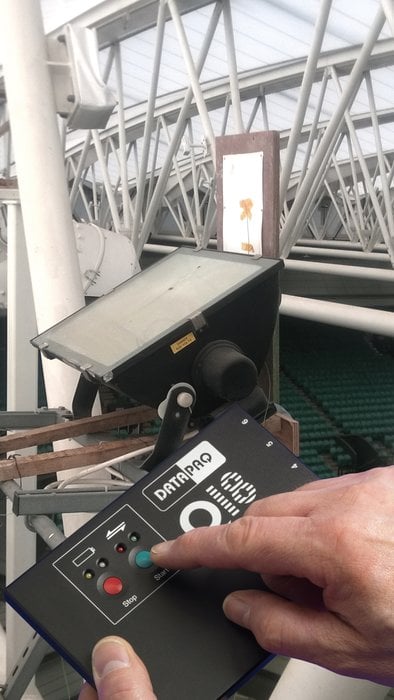www.industry-asia-pacific.com
19
'14
Written on Modified on
Advantage set under Wimbledon roof
Datapaq measures floodlight temperatures Cambridge, UK – When the sun comes out on a rainy Wimbledon match day, the roof over Centre Court can be retracted, but only after the floodlights have cooled down sufficiently. This is a safety requirement as well as an aesthetic one, as the 1,000 W floodlights are mounted directly on the roof beams and the fabric comes close to this heat source when the roof is retracted.

image: © AELTC/Thomas Lovelock
To check how soon the lights reach the critical temperature of 100 °C and the roof retract temperature, Galliford Try, the company that built the Centre Court for the All England Club, engaged the temperature profiling expert Datapaq. On an out-of-season day, Datapaq engineer Kevin Stephens performed a measurement run with three thermocouples mounted above and close to two lights. Connected to the sensors via 10 m trailing cables, a Q18-type data logger captured the temperature profiles with a 2 s sampling rate. Using a notebook and Datapaq’s specialized Insight software, Stephens read out and analyzed the data, marking events such as “lights switched off” or “sensor moved”. The test turned out to prove that the prescribed half-hour wait after the lights are switched off is actually necessary for safe operation. Eugene McCormick, Senior Project Manager at Galliford Try, notes, “We now have precise radiant heat temperature data. We will utilize this information when designing the roof for No.1 Court.” Datapaq supplied the full report, showing the temperature curves of all sensors over two and a half hours, during which the flood lights were on for nearly two hours and then switched off to cool down.


